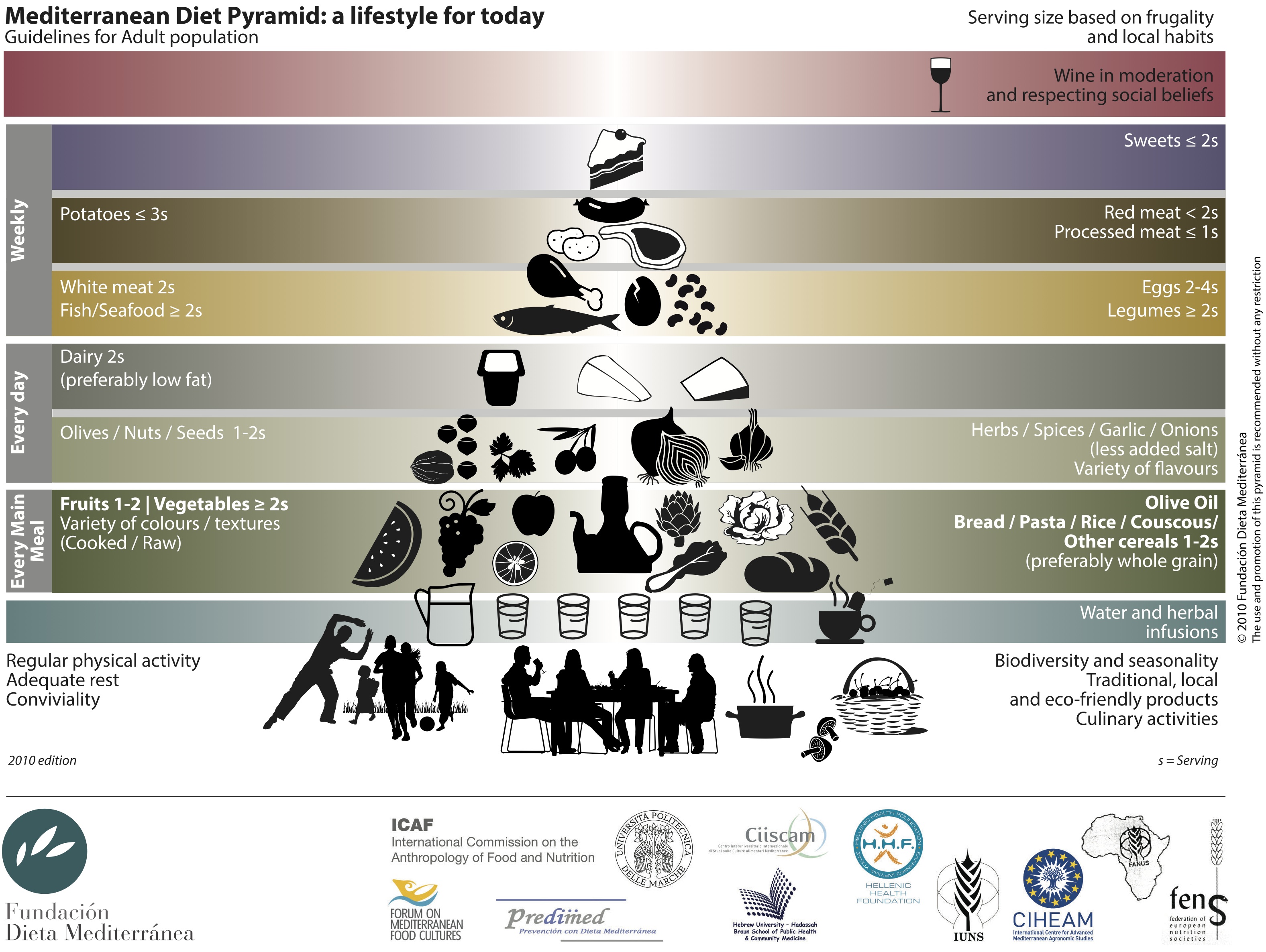
Eat healthy
Healthy eating is a crucial part of keeping us healthy.
The food choices you make each day affect your overall health – how you feel today, tomorrow and in the future.
Our daily nutrient requirements change with different life stages and the food choices we make at every stage of our life are important in determining our nutrient intake.
Healthy eating means you are getting the correct amount of nutrients (protein, carbohydrates, fat, vitamins & minerals) that you need to be in good health.
Combine with physical activity
Both eating healthy and being physically active have an important role on leading a healthy lifestyle that can help you to improve your health.
The combination of physical activity with good nutrition can help you to feel good and have more energy, reach and maintain a healthy weight, reduce your risk of chronic diseases (like heart disease, type 2 diabetes and cancer) and promote your overall health.
In today’s society we tend to consume too many calories from foods and drinks that are very high in fat, sugar and salt. Foods that are full of calories and provide very little of the essential vitamins and minerals that our body needs.
Read food labels
Reading food labels can also help you choose wisely because food labels provide useful details on the amounts of the different nutrients contained in a food.
Watch this video from the European Food Information Council (EUFIC) to better understand the Nutrition labelling information:
Studies show that unhealthy eating habits contribute to the obesity epidemic.
Countries worldwide are facing a major health problem in the high prevalence of obesity and its underlying cause – an imbalance between energy intake and energy requirements.
Keep the energy balance
ENERGY BALANCE means that the energy we get from food and drinks equals the energy our bodies use.
Watch this video from the European Food Information Council (EUFIC) to better understand the Energy Balance concept.
The consequences of obesity are well documented by the World Health Organization (WHO) obesity reports, with an estimated 2.8 million adults dying each year from related conditions; overweight and obesity have also been linked to chronic conditions such as cardiovascular disease, Type II diabetes, respiratory diseases, and certain types of cancer.
Overweight and obesity are defined as abnormal or excessive fat accumulation that present a risk to health.
Calculate Your Body Mass Index (BMI)
The most commonly used measure for overweight and obesity is the Body Mass Index (BMI). The BMI is a simple index of weight-for-height commonly used to classify overweight and obesity in adults. It is defined as a person’s weight in kilograms divided by the square of the height in meters (kg/m2).
For adults, the WHO defines overweight as a BMI greater than or equal to 25; and obesity is a BMI greater than or equal to 30.
The BMI provides the most useful population-level measure of overweight and obesity. It is the same for both sexes and for all ages of adults.
Nevertheless, BMI should be considered as a rough guide because it may not correspond to the same body fat percentage in different individuals.
For children and adolescents different methods to measure a body’s healthy weight are available.
You can find weight loss advice at the Safefood website.
Food based dietary guidelines (FBDG)
To start eating healthy is easier than you think. There are food based dietary guidelines (FBDGs), also called healthy eating guidelines, and food pyramids available to help you to know where to start. These FBDGs usually also include portion sizes that are simple and easy to understand, and they are a practical tool which may enable people to have improved control over their food and energy intake.
Here you have the links to the healthy eating guideline for Ireland, for the UK, for the USA, for Canada, for Spain and for France.
These healthy eating guidelines are backed by scientific research and are used by governments as part of their national health strategies for health promotion.
The Mediterranean Diet
The Mediterranean Diet is one of the healthiest dietary patterns in the world, and studies suggest that following a Mediterranean style diet can help you to be at a lower risk for cancer and other chronic diseases.
Here you have the link to the Food Pyramid Guide of the Mediterranean Diet foundation: Food pyramid.

Get sufficient sleep & good hydration
Healthy eating is most effective for your overall health when accompanied by good hydration, sufficient sleep and enough physical activity.
Take small steps each week
You just need to take small steps each week to improve your nutrition and move toward a healthier you.
If you have a medical condition you should seek your doctor’s advice. And for guidance for your specific nutritional needs you should see a registered dietitian.
If you do not have a medical condition, but after reading this post on healthy eating you are not sure about how to achieve your nutrition and health goals and you would like to get a more personalized approach to achieve your goals, I can help you. Learn more about my nutrition & health coaching services.